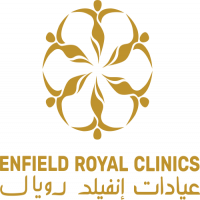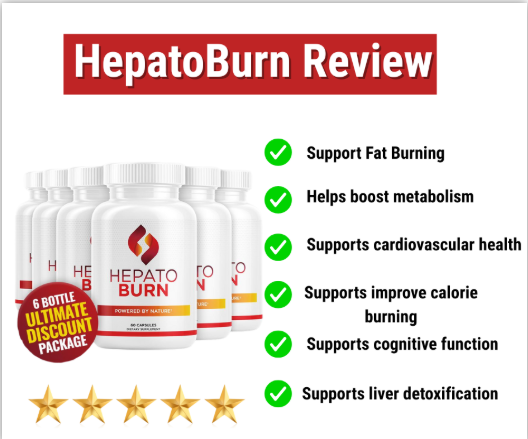When it comes to losing weight, many people are on the lookout for the most effective treatments available. Whether you're seeking medical interventions or non-medical alternatives, the choices can be overwhelming. Fortunately, with so many options on the market, there’s something for everyone—regardless of your preferences, budget, or lifestyle. In this article, we’ll explore Weight Loss Clinic Dubai, so you can make an informed decision about which one may work best for you.
✍️ Older adults require a different approach to fat loss. Our article on weight loss explains low-impact workouts and nutrient-rich diets suited for those above 50.
What Are Medical Weight Loss Treatments?
Medical weight loss treatments are typically those that are prescribed or performed under the supervision of a healthcare professional. These methods often involve the use of medication, surgical procedures, or specialized medical equipment. They are designed to assist with weight loss in cases where diet and exercise alone are insufficient or impractical.
1. Weight Loss Medications
Certain medications can help with weight loss by controlling appetite, increasing metabolism, or reducing fat absorption. These medications are generally prescribed for individuals who are obese or overweight and have underlying health conditions such as diabetes or high blood pressure.
Appetite suppressants: These help control hunger by affecting chemicals in the brain that regulate appetite.
Fat blockers: These medications prevent your body from absorbing some of the fat you consume.
Metabolism boosters: These work by increasing your body's ability to burn fat.
2. Surgical Options: Bariatric Surgery
Bariatric surgery is typically reserved for those with severe obesity. This surgical procedure alters the digestive system to help reduce the amount of food you can consume, leading to significant weight loss.
Gastric Bypass: A procedure that reduces the stomach size and reroutes part of the digestive system.
Sleeve Gastrectomy: A procedure where a portion of the stomach is removed, creating a "sleeve" that limits the amount of food that can be eaten.
While bariatric surgery can lead to substantial weight loss, it comes with risks and requires careful aftercare. It’s essential to consult with a healthcare professional to evaluate the benefits and risks.
3. Medical Weight Loss Devices
Some devices are designed to help with weight loss by targeting fat cells or reducing the appetite. These treatments are non-invasive but require expert supervision.
Cryolipolysis (Fat Freezing): A non-invasive procedure that freezes fat cells, which are then eliminated by the body over time.
Ultrasound Lipolysis: Uses sound waves to break down fat cells and reduce localized fat deposits.
Non-Medical Weight Loss Treatments
For those looking for alternatives to medical interventions, non-medical weight loss treatments focus on lifestyle changes, body contouring techniques, and natural methods. While these options may not offer the immediate, dramatic results of surgery or medications, they can be effective in helping to shed pounds and achieve a healthier body.
1. Dietary Changes and Nutrition
One of the most effective ways to lose weight is through a balanced, healthy diet. Focus on eating nutrient-rich foods, such as:
Whole grains (brown rice, oats, quinoa)
Lean proteins (chicken, fish, tofu)
Healthy fats (avocado, nuts, olive oil)
Plenty of vegetables and fruits
If you’re unsure where to start, working with a nutritionist can help you develop a personalized plan. They can provide insight into portion control, meal timing, and food choices that promote sustainable weight loss.
2. Exercise and Physical Activity
Regular physical activity plays a crucial role in weight loss. Incorporating both cardio and strength training exercises into your routine can significantly improve fat-burning efficiency. Common exercises that support weight loss include:
Cardiovascular exercises like walking, jogging, cycling, and swimming help burn calories.
Strength training (weight lifting, bodyweight exercises) builds muscle mass, which can boost metabolism and help you burn fat at rest.
Even activities like yoga and pilates can improve flexibility and strength while supporting weight management.
3. Non-Surgical Body Contouring Treatments
For those looking to sculpt and tone their bodies, there are several non-surgical options available. These treatments are designed to target stubborn fat deposits and reduce inches around the body without the need for surgery.
Laser Lipolysis: A laser treatment that targets fat cells beneath the skin and causes them to break down.
Radiofrequency Therapy: Uses heat energy to tighten the skin and reduce the appearance of cellulite while also helping to eliminate fat.
Fat Dissolving Injections: These injections break down fat cells, allowing the body to naturally process and remove them.
While these treatments can be effective, they are often best suited for those who are close to their ideal weight but have trouble with small, localized areas of fat.
4. Lifestyle Modifications: Sleep and Stress Management
Sleep and stress levels can have a significant impact on weight loss. Inadequate sleep can disrupt hormones that regulate hunger, while high stress levels can lead to emotional eating. Prioritizing restful sleep and managing stress through activities like meditation, breathing exercises, or mindfulness can help support weight loss efforts.
5. Natural Supplements and Herbal Remedies
Some people opt for natural supplements to aid their weight loss journey. Certain herbs, teas, and supplements are believed to have fat-burning properties, such as:
Green Tea Extract: Rich in antioxidants, green tea is thought to boost metabolism and promote fat oxidation.
Garcinia Cambogia: A tropical fruit extract that may help curb appetite and reduce fat storage.
Apple Cider Vinegar: Thought to help regulate blood sugar levels and support digestion.
While many people report benefits from these natural remedies, it’s essential to consult with a healthcare professional before starting any new supplement regimen.
Post-Treatment Care: How to Maintain Your Weight Loss Results
Regardless of the Weight Loss Clinic in Dubai, maintaining your results requires ongoing commitment and care. Here are some general tips for keeping the weight off:
Follow a healthy, balanced diet: Avoid returning to unhealthy eating habits that led to weight gain in the first place.
Stay active: Incorporate regular exercise into your routine to maintain muscle mass and keep your metabolism high.
Stay hydrated: Drink plenty of water throughout the day to support your body’s natural processes.
Regular check-ins: Monitor your progress with regular weigh-ins or body measurements to stay on track.
Conclusion
Whether you opt for a medical weight loss treatment, a non-medical approach, or a combination of both, the most important factor is finding a method that aligns with your lifestyle and health goals. The best weight loss treatment is the one that you can commit to long-term, ensuring that you not only lose weight but maintain a healthy, balanced life.








